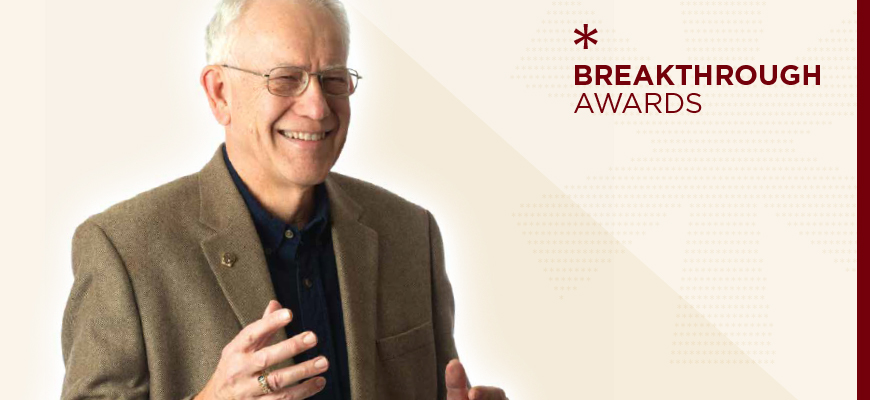
Mentoring multiplied
Biology professor takes mentoring to new levels, at home and work
Posted on: April 6, 2018; Updated on: April 6, 2018
By Page Ivey, pivey@mailbox.sc.edu, 803-777-3085
Bert Ely has always worked to recruit minority students into biology as well as into science in general, but it was about 20 years ago that he says he felt called to do more.
That’s when he and his wife decided to leave their gated community and moved to Eau Claire, a mostly African-American and modest-income neighborhood on Columbia’s north side.
“We had started going to a church that reflected the diversity — the racial and economic diversity — of the city,” says Ely, a biological sciences professor and director of the Center for Science Education. “I told my wife that I felt like God was speaking to us and telling us to move to Eau Claire and work with children. She said, ‘He’s been telling me the same thing.’”
Once the couple moved in and got to know their neighbors, they began hosting an afterschool homework center.
“Amazingly enough, their grades began to shoot up,” he says. “We were some of the only adults who actually talked to them and made them feel important.”
As director of the Center for Science Education since 2009, Ely has increased professional development opportunities for K-12 science teachers across South Carolina, including a nature-based inquiry program to encourage elementary school teachers to develop lessons for outdoor classrooms. He also serves as co-director for the biology master’s in teaching program that trains future biology teachers.
In 2006, supported by a grant from the National Institutes of Health, Ely developed the SCienceLab program that brings middle and high school students to Carolina for a full day of inquiry-based laboratory experiences.
“Thousands of students from South Carolina have participated in this program and have learned what it is like to be a scientist and to conduct scientific research,” Ely says.
In addition to increasing the flow of potential scientists early in the pipeline, Ely also helps recent college graduates get better prepared for graduate school. USC PREP helps talented minority students get additional preparation after their undergraduate degree so they can get into a biomedical Ph.D. program.
I told my wife that I felt like God was speaking to us and telling us to move to Eau Claire and work with children. She said, ‘He’s been telling me the same thing.’
Bert Ely
Funding for the program, which comes from the National Institutes for Health, allows the university to hire up to eight students each year to work full-time in a research lab while taking one graduate course per semester. The opportunity to show their research talent and ability to get good grades in graduate level courses helps the students get into Ph.D. programs.
“It also benefits other faculty,” Ely says. “We pay the salary for their techs for a year, and all we ask them to do is mentor them while they are here.”
The effort has paid off with more than 100 peer-reviewed scientific papers that included PREP Scholars or graduate students who participated in the NIH-funded biomedical science programs.
“His activities have a strong impact on USC by making us relevant to the community in South Carolina, promoting USC to future students, and putting us into the national spotlight when it comes to support for minority students and science education,” says biological sciences department chair Johannes Stratmann.